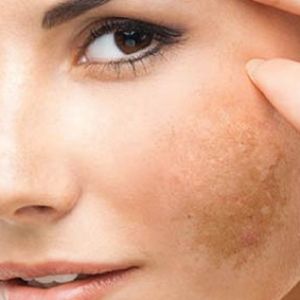5 Easy Tips & Tricks To Achieve A Normal Skin BalancePosted by sheema unnisa on January 7th, 2023 Having good genes to have healthy and bright skin is not enough. Your regular skincare routine and lifestyle behaviours significantly impact your skin's health and appearance. Developing an excellent skincare routine does not begin with purchasing the greatest products available. The first step is to learn to take care of your skin and protect it by following a daily skincare routine. In this blog, we will talk about some efficient tips from a skin specialist in Bangalore that will assist you in achieving normal skin balance. What is normal skin? Skin is considered "normal" if it is not excessively oily or dry and has no recurring skin issues or conditions. This healthy skin type has even moisture and hydration levels, a homogeneous texture, and no evident problem areas. However, when exposed to environmental stressors such as UV radiation and pollution, normal skin might experience modest changes in oiliness and dryness and the occasional breakout. About the pH scale The pH scale is a numerical scale used to evaluate whether a substance is acidic or alkaline. The pH scale is 0 to 14, with 7 denoting neutral pH. Any pH level less than 7 is deemed acidic, and any pH level greater than 7 is considered alkaline. What does this have to do with your skin? Your skin’s pH significantly impacts its barrier function, moisture retention, and microbial environment. The ideal pH balance for human skin is on the more acidic end of the spectrum, normally in the range of 5-7 but typically around 5.5 pH, which may surprise you. This is the area where the skin may defend itself against dangerous microorganisms and free radicals that may hasten the ageing process. Skin problems are more prevalent if your pH balance deviates greatly from this range, either in the too-acidic or too-alkaline direction. Tips & tricks to achieving a normal skin balance Although having normal skin involves little work, it is still necessary to maintain your skin with a healthy skin care regimen. Incorporate a few basic suggestions into your everyday skincare regimen to maintain your skin health. These are some tips:
The sun's damaging UVA and UVB radiation impact all skin types, and sunscreen provides protection against these dangerous UV radiations. Pick a sunscreen with a PA +++ rating and at least SPF 30. In this manner, you can help prevent skin cancer, premature ageing, and sunburn. Remember to apply sunscreen to your ears, feet, hands, lips, and face.
Hydration is essential for the skin from the inside out. You should keep the face hydrated with a moisturiser and drink at least ten glasses of water daily. It may aid in the sealing of moisture in the skin and the regulation of sebum production. It also protects skin cells from environmental harm and maintains them plump. You can also choose some fresh fruits and vegetables that are high in water content.
One of the variables that might impact skin is stress. And if you don't get a break, the consequences could be severe. Therefore, get enough rest—at least 8 hours per night. The body recovers from daily stress during the sleep cycle, and if those hours of sleep are cut short, the skin may age prematurely. On the other hand, you must have noticed how fresh-looking your skin is after a good night's sleep. As a result, ensure you get at least 8 hours of sleep every night.
When you touch your face, bacteria, dirt, and oil from your hands are transferred to your face. Make every effort to keep your hands away from your face.
Long, hot showers and baths could irritate your skin, causing itching, redness, and even peeling. Furthermore, hot water can disrupt the skin's natural moisture balance, causing it to dry out or be damaged. Try 5-10 minutes of lukewarm showering and avoid using hot water, which can cause excessive dryness and irritation. Different types of skin disorders You can develop various facial skin disorders if you do not follow a healthy skincare routine. Let's look into these most prevalent skin conditions:
Acne is one of the most frequent skin diseases in adults, which affects the face, neck, chest, and back. That is why the best skin doctor should treat acne because untreated acne can often result in permanent scars and dark face patches.
Atopic dermatitis (eczema) is a skin condition characterised by dry, itchy, and irritated skin. It is most frequent in young children but can happen at any age. Atopic dermatitis is a chronic disorder that might occasionally worsen, although it is not communicable. It will mostly necessitate skin treatment from the best skin clinic.
Psoriasis is a disease of the immune system that causes skin inflammation. This happens when skin cells multiply quickly because the immune system is too active. Normal skin cells might grow and shed after a month. In psoriasis, this takes three to four days for the skin cells to do. Your skin specialist can help you set a baseline for your disease, monitor co-occurring conditions, and prevent flare-ups and symptoms. Conclusion Our skin's demands change over time, so taking the required measures to identify these demands is critical for it to be good and look its best. In this post, we have carefully put down the instructions for good daily skincare routines, which are pretty simple. We recommend you go to the best skin specialist if you require expert advice. Like it? Share it!More by this author |


